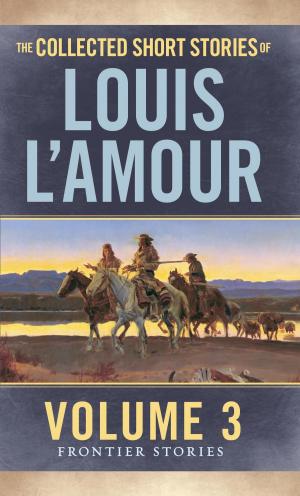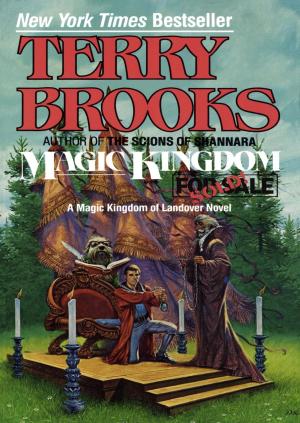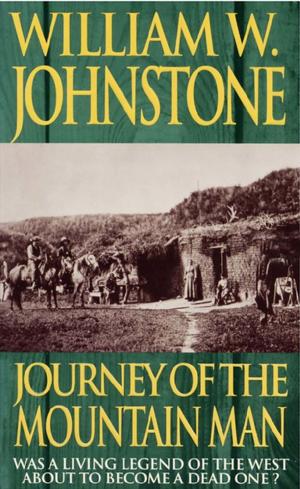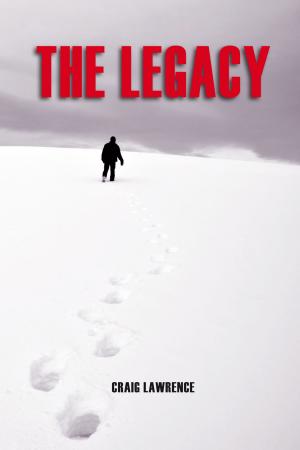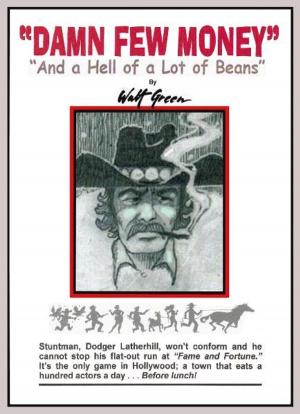| Author: | Frances Ellis | ISBN: | 9789966790125 |
| Publisher: | George Morrison | Publication: | April 25, 2016 |
| Imprint: | Smashwords Edition | Language: | English |
| Author: | Frances Ellis |
| ISBN: | 9789966790125 |
| Publisher: | George Morrison |
| Publication: | April 25, 2016 |
| Imprint: | Smashwords Edition |
| Language: | English |
James’ Crossing is a late eighteenth century nostalgic tale of one man’s life adventure, from his first steps onto the new world to his various crossings through life and land as one of America’s early pioneers. James Sterling, a Scotsman forced into service to the English Navy, jumps ship and dares to pursue whatever comes his way in the deep south of a newly formed United States. Written in the genre of historical fiction, the story is loosely based on the life of an ancestor of the author, Dr. Frances Sterling Ellis, who at the time of publishing is 93 years old. Remarkably, the author is only three generations removed from the title character himself.
Fleeing the English, and having an idea what would become of him as an unwilling British soldier, Sterling risks life and limb to escape his captors by jumping overboard at his first glimpse of land in the new world. During his crossing in the frigid waters of the ocean from the ship to his new life, Sterling realizes that surviving in this strange new wilderness will not be easy. He would have to adapt quickly to dangers he could never have imagined back in Scotland.
Sterling regains consciousness on a deeply forested shore, hungry, thirsty, and exhausted. He finds himself surrounded by dark-skinned, strangely dressed men he had only heard of when he visited the pub back at home. He manages to befriend the natives of this curious new existence, learning not only survival skills, but new trades he would never have thought himself pursuing. The men he meets in this new place are as sturdy and able as the best he had known in his childhood.
Sterling finds himself crossing again into one new existence after the other. Life is anything but stagnant and predictable here. Almost as hard to navigate as the cruelness of struggling to find food and shelter is the empty loneliness of having no one to share in his hardships, and the realization that he will never know the comfort of his beloved Scotland again. Eventually, Sterling develops life-long genuine relationships as he matures into a man worthy of the austerity of frontier life.
James’ Crossing explains the process of the assimilation of populations, which only a few decades earlier would never have coexisted. His world is a melting pot of vastly varied experiences bonding in unique ways to make the most of the strengths and weaknesses of their different cultures.
This novel describes with refreshing accuracy the lifestyles, hardships and pleasure of frontier families. Bonds are continuously forming out of necessity to handle wars, government interference and acts of God. The novel tracks the progression of government homesteading, with all of the predicted and unpredicted problems and conflicts this new system brings. Over the near-century expanse of the novel, the reader is introduced to historical conflicts such as Indian-Settler relations, pro and anti slave factions, interracial marriages and children, and the give and take of a country finding its identity. New generations are introduced and lifestyles progress as the story slowly moves toward the society we know today. The author has a unique ability to describe the challenges and joys of daily life on the homestead, which is not wholly unlike life during her own childhood growing up in rural Mississippi. Like the characters in the novel, the story is an intricate view into how our country came to be, with races both embracing and alienating each other, cultures both intermingling and clashing, and invention, farming and technology beginning to shape the nation as it is today. James’ Crossing is the first of a trilogy written by this late-blooming American author. Our nation continues to take shape in the two novels yet to come.
James’ Crossing is a late eighteenth century nostalgic tale of one man’s life adventure, from his first steps onto the new world to his various crossings through life and land as one of America’s early pioneers. James Sterling, a Scotsman forced into service to the English Navy, jumps ship and dares to pursue whatever comes his way in the deep south of a newly formed United States. Written in the genre of historical fiction, the story is loosely based on the life of an ancestor of the author, Dr. Frances Sterling Ellis, who at the time of publishing is 93 years old. Remarkably, the author is only three generations removed from the title character himself.
Fleeing the English, and having an idea what would become of him as an unwilling British soldier, Sterling risks life and limb to escape his captors by jumping overboard at his first glimpse of land in the new world. During his crossing in the frigid waters of the ocean from the ship to his new life, Sterling realizes that surviving in this strange new wilderness will not be easy. He would have to adapt quickly to dangers he could never have imagined back in Scotland.
Sterling regains consciousness on a deeply forested shore, hungry, thirsty, and exhausted. He finds himself surrounded by dark-skinned, strangely dressed men he had only heard of when he visited the pub back at home. He manages to befriend the natives of this curious new existence, learning not only survival skills, but new trades he would never have thought himself pursuing. The men he meets in this new place are as sturdy and able as the best he had known in his childhood.
Sterling finds himself crossing again into one new existence after the other. Life is anything but stagnant and predictable here. Almost as hard to navigate as the cruelness of struggling to find food and shelter is the empty loneliness of having no one to share in his hardships, and the realization that he will never know the comfort of his beloved Scotland again. Eventually, Sterling develops life-long genuine relationships as he matures into a man worthy of the austerity of frontier life.
James’ Crossing explains the process of the assimilation of populations, which only a few decades earlier would never have coexisted. His world is a melting pot of vastly varied experiences bonding in unique ways to make the most of the strengths and weaknesses of their different cultures.
This novel describes with refreshing accuracy the lifestyles, hardships and pleasure of frontier families. Bonds are continuously forming out of necessity to handle wars, government interference and acts of God. The novel tracks the progression of government homesteading, with all of the predicted and unpredicted problems and conflicts this new system brings. Over the near-century expanse of the novel, the reader is introduced to historical conflicts such as Indian-Settler relations, pro and anti slave factions, interracial marriages and children, and the give and take of a country finding its identity. New generations are introduced and lifestyles progress as the story slowly moves toward the society we know today. The author has a unique ability to describe the challenges and joys of daily life on the homestead, which is not wholly unlike life during her own childhood growing up in rural Mississippi. Like the characters in the novel, the story is an intricate view into how our country came to be, with races both embracing and alienating each other, cultures both intermingling and clashing, and invention, farming and technology beginning to shape the nation as it is today. James’ Crossing is the first of a trilogy written by this late-blooming American author. Our nation continues to take shape in the two novels yet to come.



